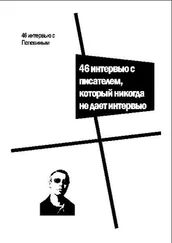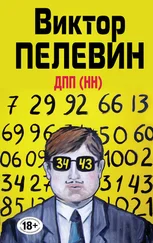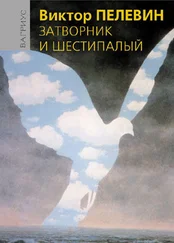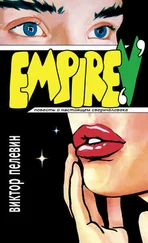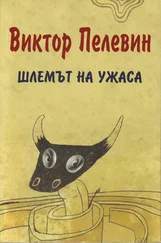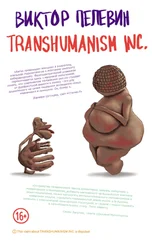Виктор Пелевин - Buddha's Little Finger
Здесь есть возможность читать онлайн «Виктор Пелевин - Buddha's Little Finger» весь текст электронной книги совершенно бесплатно (целиком полную версию без сокращений). В некоторых случаях можно слушать аудио, скачать через торрент в формате fb2 и присутствует краткое содержание. Жанр: Современная проза, на английском языке. Описание произведения, (предисловие) а так же отзывы посетителей доступны на портале библиотеки ЛибКат.
- Название:Buddha's Little Finger
- Автор:
- Жанр:
- Год:неизвестен
- ISBN:нет данных
- Рейтинг книги:5 / 5. Голосов: 1
-
Избранное:Добавить в избранное
- Отзывы:
-
Ваша оценка:
- 100
- 1
- 2
- 3
- 4
- 5
Buddha's Little Finger: краткое содержание, описание и аннотация
Предлагаем к чтению аннотацию, описание, краткое содержание или предисловие (зависит от того, что написал сам автор книги «Buddha's Little Finger»). Если вы не нашли необходимую информацию о книге — напишите в комментариях, мы постараемся отыскать её.
Buddha's Little Finger — читать онлайн бесплатно полную книгу (весь текст) целиком
Ниже представлен текст книги, разбитый по страницам. Система сохранения места последней прочитанной страницы, позволяет с удобством читать онлайн бесплатно книгу «Buddha's Little Finger», без необходимости каждый раз заново искать на чём Вы остановились. Поставьте закладку, и сможете в любой момент перейти на страницу, на которой закончили чтение.
Интервал:
Закладка:
‘Ohae gozaimas,’ the receiver echoed cheerfully. ‘Mr Serdyuk?’
‘Yes,’ said Serdyuk.
‘Hello. My name is Oda Nobunaga and I had a conversation with you yesterday evening. More precisely, last night. You were kind enough to give me a call.’
‘Yes,’ said Serdyuk, clutching at his head with his free hand.
‘I have discussed your proposal with Mr Esitsune Kawabata, and he is prepared to receive you today at three o’clock for purposes of an interview.’
Serdyuk didn’t recognize the voice in the receiver. He could tell straight away it was that of a foreigner - although he couldn’t hear any accent, the person talking to him made pauses, as though he were running through his vocabulary in search of the right word.
‘Much obliged,’ said Serdyuk. ‘But what proposal’s that?’
‘The one you made yesterday. Or today, to be precise.’
‘Aha!’ said Serdyuk. ‘A-a-ha!’
‘Write down the address,’ said Oda Nobunaga.
‘Hang on,’ said Serdyuk, ‘just a moment. I’ll get a pen.’
‘But why do you not have a notepad and a pen by the telephone?’ Nobunaga asked with obvious irritation in his voice. ‘A man of business should do so.’
‘I’m writing now.’
‘Nagornaya metro station, the exit on the right. There will be an iron fence facing you and a house, with an entrance to the yard. The precise address is Pyatikhlebny Lane, house number five. There will be a… What is it now… A plaque.’
‘Thank you.’
‘That is all from me. Sayonara, as they say,’ said Nobunaga and hung up.
There was no beer in the fridge.
Emerging on to the surface of the earth from Nagornaya metro station long before the appointed time, Serdyuk immediately saw a fence covered with battered and peeling tin-plate, but he didn’t believe it could be the same one mentioned by Mr Nobunaga - this fence was somehow too plain and too dirty. He walked around the area for a while, stopping the rare passers-by and asking where Pyatikhlebny Lane was. This was something nobody seemed to know, however, or perhaps they simply didn’t want to tell him - most of the people Serdyuk found to ask were old women in dark clothes plodding slowly on their way to some mysterious destination.
It was a wild place, like the remnants of some industrial region bombed to smithereens in the distant past and now overgrown with wild grass, through which, here and there, pieces of rusty iron protruded. There was plenty of open space and sky, and he could see dark strips of forest on the horizon. But despite these banal commonplaces, this region was very unusual: if he looked to the west, where the green fence was, he saw a normal panoramic cityscape, but if he turned his gaze to the east, his field of view was entirely filled with a vast stretch of emptiness, with a few street lamps towering above it like gallows trees. It was as though Serdyuk had found his way precisely to the secret border between post-industrial Russia and primordial Rus.
It was not one of the areas where serious foreign companies opened their offices, and Serdyuk decided this must be some two-bit firm staffed by Japanese who had failed to adjust fully to the demands of the changing world (for some reason he thought of the peasants from the film The Seven Samurai). It was clear now why they’d taken such an interest in his drunken phone call, and Serdyuk even felt a surge of sympathy and warm fellow-feeling for these slightly dull-witted foreigners who, just like himself, had not been able to find themselves a comfortable niche in life - and now, of course, the doubt that had been nagging at him all the way there, the idea that he really should have had a shave, quite simply disappeared.
Mr Nobunaga’s direction that ‘there will be a house’ could have applied to several dozen buildings in his field of view. Serdyuk decided for no particular reason that the one he was looking for was a grey eight-storey building with a glass-fronted delicatessen on the ground floor. Remarkably enough, after he had spent about three minutes walking around the yard behind the building, he spotted a brass oblong on the wall with the inscription Taira Trading House and a tiny bell-push, at first glance invisible against the uneven surface of the wall. About a yard away from the plaque there was a crude iron door hanging on immense hinges, painted with green paint. Serdyuk looked around in consternation - apart from the door, the only other thing the plaque could possibly relate to was a cast-iron manhole cover in the asphalt. Serdyuk waited until his watch showed two minutes to three and rang the bell.
The door opened immediately. Standing behind it was the inevitable hulk in camouflage gear, holding a rubber truncheon. Serdyuk nodded to him and opened his mouth in order to explain the reason for his visit - but then his jaw dropped.
Beyond the door there was a small hallway with a desk, a telephone and a chair, and on the wall of this hallway there was a large mural, showing a corridor extending into infinity. But on looking more closely at the mural, Serdyuk realized it wasn’t a mural at all, it was a genuine corridor, which began on the other side of a glass door. This corridor was very strange: there were lanterns hanging on its walls - he could actually see flickering flames through their thin rice-paper shades - and scattered over the floor was a thick layer of yellow sand, across the surface of which narrow mats made of slivers of split bamboo lay side by side to form a kind of carpet-runner. The same emblem that he had seen in the newspaper was drawn in bright red paint on the lanterns - a flower with four diamond-shaped petals (the side petals were longer than the others), enclosed in an oval. The corridor did not actually run off into infinity, as he’d thought at first, it simply curved smoothly to the right (it was the first time Serdyuk had seen that kind of layout in a building in Moscow), and its far end was hidden from sight.
‘What’yer want?’ said the security guard, breaking the silence.
‘I’ve a meeting with Mr Kawabata,’ said Serdyuk, pulling himself together, ‘at three o’clock.’
‘Ah. Come inside then, quick. They don’t like it when the door’s left open for long.’
Serdyuk stepped inside and the guard closed the door and locked it with something that looked like a massive valve-wheel.
‘Take your shoes off, please,’ he said. ‘The geta are over there.’
‘The what?’ asked Serdyuk.
‘The geta. What they use for slippers. They don’t wear any other shoes inside. That’s a strict rule.’
Serdyuk saw several pairs of wooden shoes lying on the floor.
They looked very clumsy and uncomfortable, something like tall shoe-stretchers with a strap made out of a split string, and you could only put the shoe-stretchers on your bare feet, because the strap had to be inserted between the big toe and the second toe. Just for a second he thought the security guard was joking, but then he noticed several pairs of shiny black shoes with socks protruding from them standing in the corner. He sat down on a low bench and began removing his own shoes. When the procedure was complete, he stood up and noticed that the geta had made him three or four inches taller.
‘Can I go in now?’ he asked.
‘Go ahead. Take a lantern and go straight down the corridor. Room number three.’
‘Why the lantern?’ Serdyuk asked in amazement.
‘That’s the rule here,’ said the security guard, taking one of the lanterns down from the wall and holding it out to Serdyuk, ‘you don’t wear a tie to keep you warm, do you?’
Serdyuk, who had knotted a tie round his neck that morning for the first time in many years, found this argument quite convincing. At the same time he felt a desire to take a look inside the lantern to see whether there was a real flame in there or not.
Читать дальшеИнтервал:
Закладка:
Похожие книги на «Buddha's Little Finger»
Представляем Вашему вниманию похожие книги на «Buddha's Little Finger» списком для выбора. Мы отобрали схожую по названию и смыслу литературу в надежде предоставить читателям больше вариантов отыскать новые, интересные, ещё непрочитанные произведения.
Обсуждение, отзывы о книге «Buddha's Little Finger» и просто собственные мнения читателей. Оставьте ваши комментарии, напишите, что Вы думаете о произведении, его смысле или главных героях. Укажите что конкретно понравилось, а что нет, и почему Вы так считаете.

